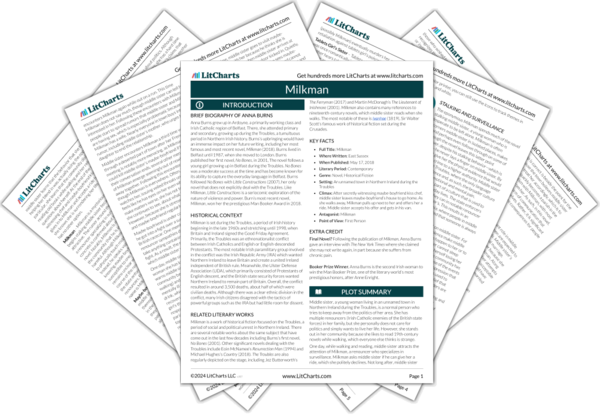Longest friend’s criticisms of middle sister are harsh but valuable. Although she does not take the friendliest approach, longest friend is attempting to provide middle sister with good advice when she informs middle sister that contrary to middle sister’s intention, her habit of reading while walking actually makes her stand out
more (and therefore puts her at risk of receiving unwanted attention and harassment). Also, longest sister’s knowledge of the cat’s head means that either someone saw longest sister’s interaction with Milkman or Milkman spread the rumor.


